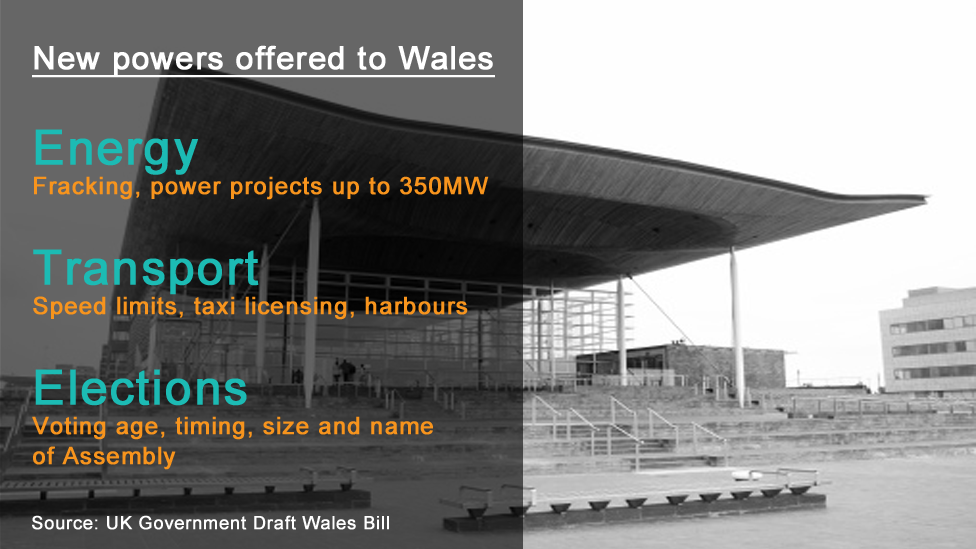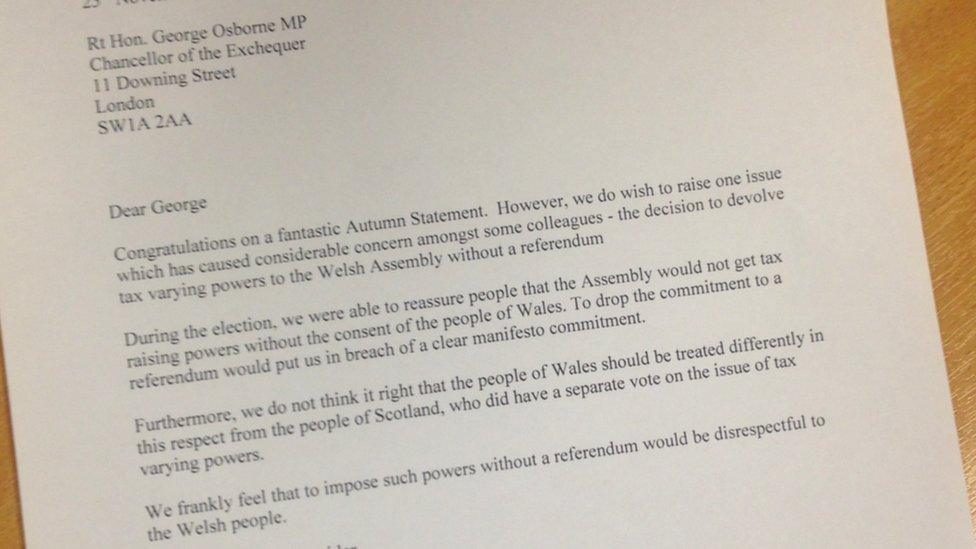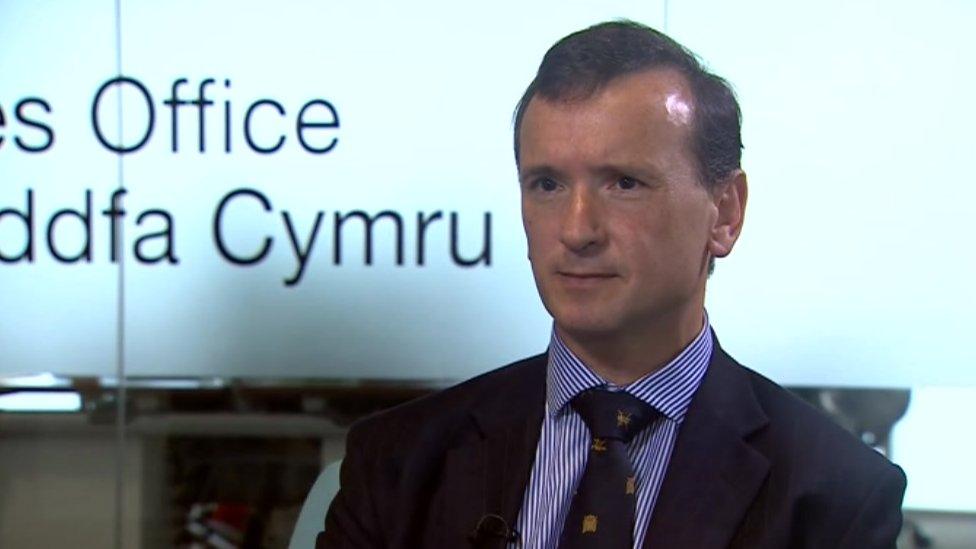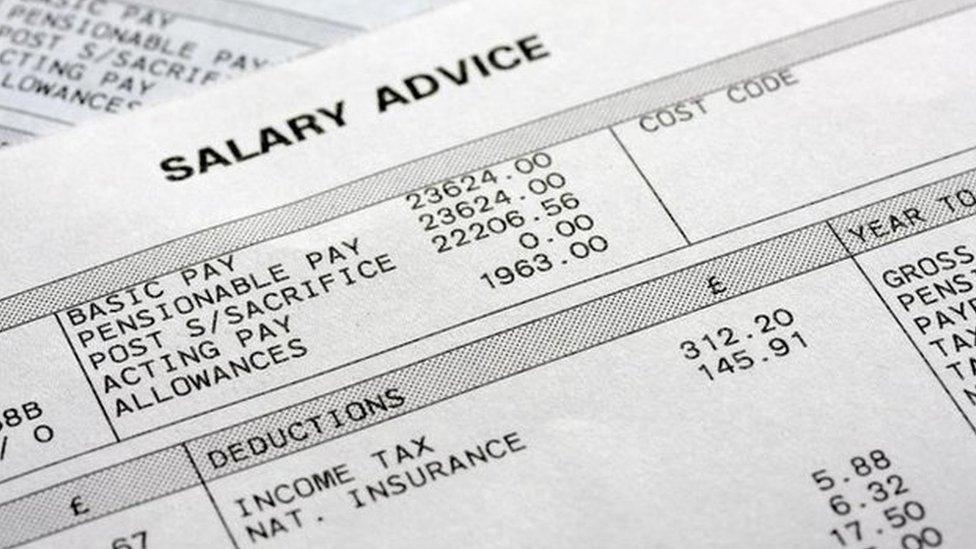Ex-Welsh Secretary has 'huge concern' about income tax plans
- Published
David Jones says it is 'disrespectful' to impose tax powers without a referendum
A former Conservative Welsh Secretary has said he has "huge concern" about plans to give the assembly income tax varying powers without a referendum.
David Jones told MPs Tories campaigned in the 2015 general election on the basis of a referendum and not having one would be "disrespectful" to people.
But current Welsh Secretary Alun Cairns said "devolution has moved forward" since the election.
Significant powers had been handed to Scotland and councils, he added.
MPs were debating the UK government's Wales Bill - to transfer further powers from Westminster to Cardiff Bay.
Earlier another Conservative, Brecon and Radnorshire MP Chris Davies, had told BBC Wales he could "see my first rebellion against the government will be coming" over the referendum issue.
Asked if other Tory MPs would join him in a rebellion, he said: "I personally feel there will be."

Addressing Mr Cairns in the Commons later Mr Davies he said he was "personally very disappointed that in this clause we have broken a manifesto commitment and I would ask if you, who stood on the same manifesto, are equally as disappointed that you are breaking this commitment?"
Mr Cairns replied: "First of all it was the 2014 [Government of Wales] Act that devolved tax varying powers to the assembly.
"This bill will go one step further by removing the requirement for a referendum.
"But what I would say - the second point I would say - is that devolution has moved forward since that time and we can either seek to have the hollow argument about rowing back or we can make the Welsh Government more accountable, more responsible for the money which it raises."
Later Clwyd West MP Mr Jones intervened: "Is it not the case that only just over 12 months ago the Conservative Party fought on a manifesto which pledged that there would be a referendum before any tax carrying competence was devolved to the assembly?"
Mr Cairns responded: "You will recognise how quickly the devolution make up of the UK has developed, evolved and matured over that time.
"And this is the next logical step to making an assembly more mature, to making it more responsible, but ultimately making it more accountable to the people of Wales."
Opening the debate , the minister said the Wales Bill would "end the squabbles between Cardiff Bay and Westminster".
He later confirmed AMs would also be able to make voting in assembly elections compulsory, a power transfer welcomed by Labour Ynys Mon MP Albert Owen as "radical" and "excellent".

Mr Davies wrote a letter to the Chancellor George Osborne with Tory backbench colleagues Byron Davies, David Davies, James Davies and David Jones after his Autumn Statement in November urging him to reverse plans to devolve the tax powers without a referendum.
Under existing law AMs can call a referendum on powers to vary income tax, but in 2015 Mr Osborne offered those powers without a referendum.
The Wales Bill also makes substantial changes to the way the assembly makes law by defining, for the first time, the areas that are in the hands of Westminster.
It also grants new powers for AMs and Welsh ministers, including speed limits, control over fracking, the name of the assembly and elections to the Senedd.
The bill has been revised from its previous draft form with more powers being devolved than planned.
- Published7 June 2016

- Published7 June 2016

- Published20 January 2016

- Published15 December 2015
